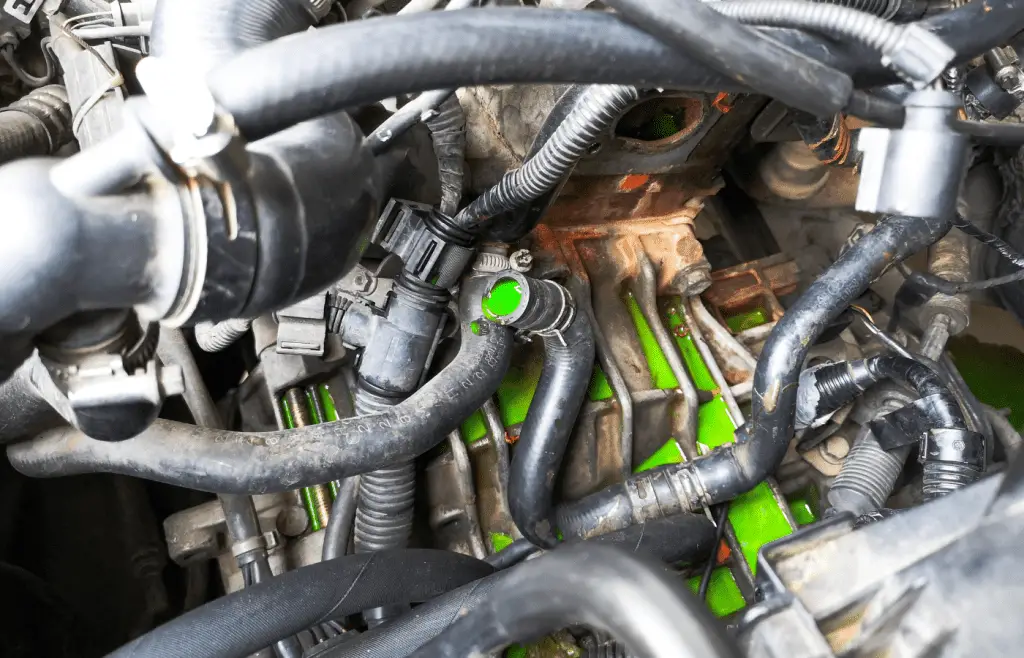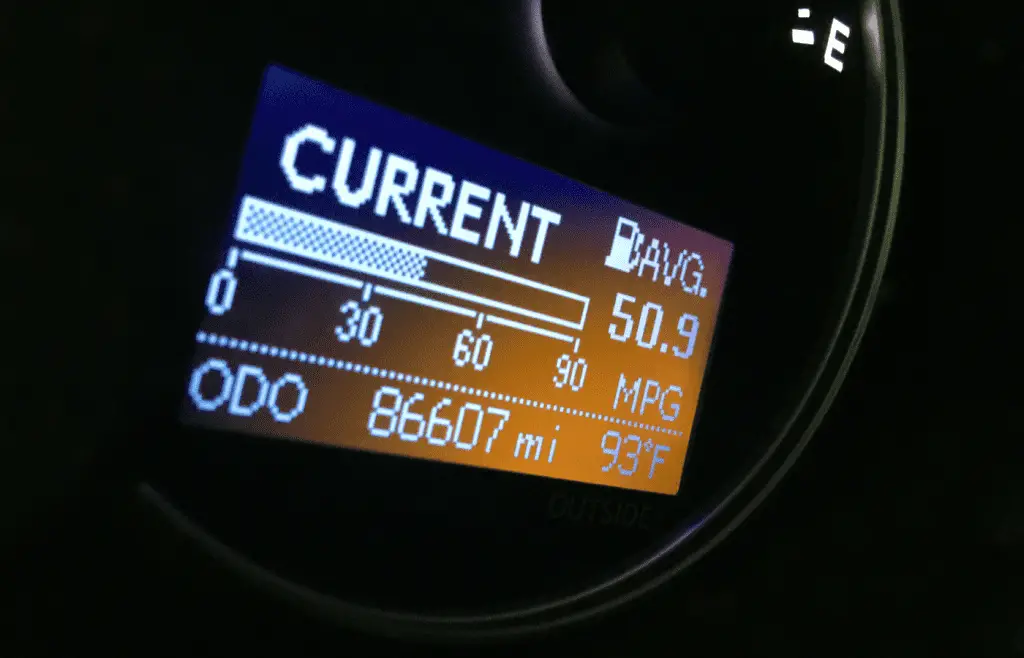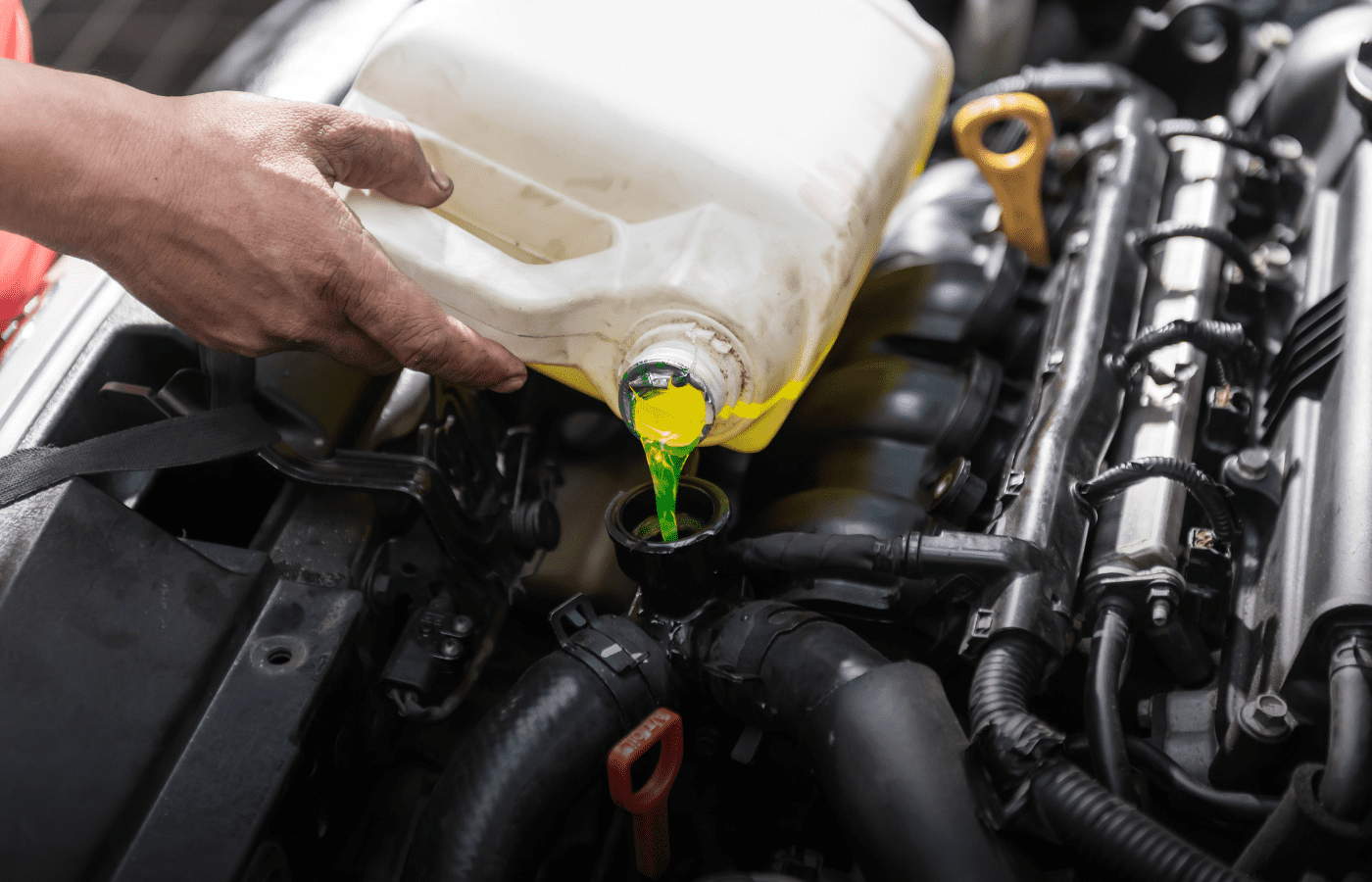Coolant is usually a 50/50 mixture with water that is used to cool your car during use and extreme temperatures. Without the proper amount of coolant in your cars engine, overheating issues can occur. On top of issues like overheating, does low coolant affect your gas mileage?
Low coolant will impact your cars gas mileage, but not as much as it could lead to engine failure. Maintaining the correct amount of coolant in your vehicles engine will contribute to proper cooling and will allow your engine to perform at peak performance.
When your car is running at the right temperature, it will be more efficient when burning fuel than if it were running at a higher temperature.
Does Coolant Help With Gas Mileage?
Making sure that your engine’s coolant levels are at the optimum levels will ensure that your car will be running optimally. Coolant will not directly affect your car’s gas mileage, but it will allow your car to run most efficiently.
Coolant’s main job is to dissipate heat that is accrued by your engine while driving. It works to eliminate any damaging heat from your engine and to keep the temperature in the optimal range for your vehicle’s engine performance.
The coolant in your car works in tandem with the radiator and water pump in your car by using the outside air that comes in through your car’s hood or grille to cool the hot liquid.
Can a Leaking Radiator Affect Fuel Efficiency?

A leaking radiator will cause lowered fuel efficiency. If your radiator has a leak, coolant will be lost which will result in less cooling efficiency of your car’s engine.
Over time, you may notice a decrease in MPG since your car will not be running at its optimum temperature, especially during the hotter months in Summer.
Signs of a Leaking Radiator
A leaking radiator has many signs, as we all know, coolant doesn’t just evaporate or disappear. If you find that your coolant is often low, than you more than likely have some type of leak in or around your radiator.
- Gradually Dropping Coolant Levels – If you find yourself topping off your coolant levels more often than not, then this is a tale tell sign that you have a radiator leak.
- Discoloration or Corrosion – When there is a coolant leak, there will be signs of corrosion or discoloration from the coolant. You can expect to see this at or around the radiator or hoses.
- Puddle of Coolant Under Your Car – One of the most obvious signs is a puddle of coolant underneath your car. Coolant comes in a variety of colors. Some of the most common colors that you will see are blue and green.
- Loose or Damaged Hoses – Over time, hoses will deteriorate or crack. This will cause small leaks. If you suspect a radiator leak, always check all the hoses as well as the connectors to make sure they are tight.
- Engine Overheating – The radiator is the main source of engine cooling. When this is compromised, you will find that your engine will run much hotter, and in the worst case scenario, overheat.
- Coolant Light – If you see a low coolant light on your dashboard, this can be a sign that you may have a coolant leak, or other issues you should be aware about.
What Happens When a Car Runs Low on Coolant?
When a car runs low on coolant, your engine is at risk for overheating. When a vehicles engine overheats, you will notice a severe decrease in engine performance/power, decreased fuel efficiency, and possible engine stalling if it becomes too hot.
To check the current price and availability of Valvoline 50/50 Coolant, click here to view the listing on Amazon.
What Are the Signs of Low Coolant?
- Worse fuel efficiency
- Overheating
- Low level coolant indicator
- Sweet odor
- Heater system malfunctioning
Does New Coolant Improve Performance?
You will not notice any immediate changes in your car’s performance by using new coolant.
If your coolant was already low, or you have issues with a radiator leak, then resolving these issues and bringing your coolant levels back to normal will indeed increase performance.
Your car’s engine will now be able to properly stay cool which can have an effect when it comes to the power output of your car, and your car’s fuel efficiency.
What Causes Decreased Gas Mileage?

Aside from having low coolant, there are a number of different causes for lower gas mileage in your car.
- Incorrect tire pressure – Always keep your tire pressure at the recommended psi. Most of the time, the manufacturers recommended tire psi can be found on the driver side door plate.
- Air Conditioner – Using your cars air conditioner will have an affect on your mpg. The ac is powered by the engine which increases your engines load, thus lowering your cars fuel efficiency.
- Driving Habits – This is probably the most overlooked aspect of a cars mpg. Under normal driving conditions, your car should meet the advertised mpg by the manufacturer. This number can be skewed if you are constantly pushing your car to the limits by accelerating very fast, or shifting at a high rpm.
- Dirty Air Filter – You should change your air filter every 12 months, or 12,000 miles. Your air filter provides fresh oxygen for your engines combustion. A dirty air filter means less oxygen will be available for your car’s engine to use which will cause a decrease in fuel efficiency.
Final Thoughts
Being low on coolant will affect your car’s mpg. However, it will have less of an impact compared to the damages that long term low coolant can have on your engine.
Overheating is the main cause and concern when having low coolant or a leaking radiator. A car that overheats due to low/no coolant can be a catastrophic event which can cost thousands to repair, and should not be taken lightly.
Set aside a little bit of time a few times per month to double check all of your car’s fluid levels. Top off any fluid that needs to be, and always check for signs of corrosion or deterioration around hoses, reservoir tanks, and your engine bay.


